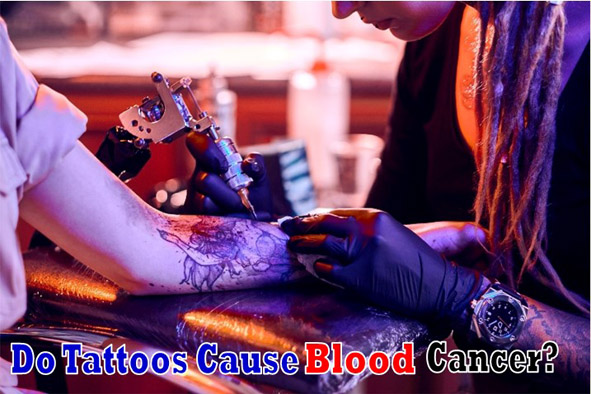Tattoos have become increasingly popular as a form of self-expression, with many people choosing to adorn their bodies with intricate designs and meaningful symbols. However, recent research has raised concerns about the potential health risks associated with tattoos, particularly the risk of developing blood cancer, such as lymphoma. In this blog post, we will explore the latest findings and provide a comprehensive overview of the current understanding of the link between tattoos and blood cancer.
Understanding Lymphoma:
Lymphoma is a type of blood cancer that affects the lymphatic system, which is part of the body’s immune system. It occurs when lymphocytes, a type of white blood cell, grow uncontrollably. There are two main types of lymphoma: Hodgkin lymphoma and non-Hodgkin lymphoma. While the exact cause of lymphoma is not fully understood, factors such as genetic predisposition, exposure to certain chemicals, and a weakened immune system can increase the risk.

The Link between Tattoos and Lymphoma:
Recent studies have suggested a potential link between tattoos and an increased risk of developing lymphoma. A study conducted by researchers at Lund University in Sweden found that individuals with tattoos had a 21% higher risk of developing lymphoma compared to those without tattoos. The study analyzed data from the Swedish National Cancer Register and included individuals aged 20-60 who were diagnosed with lymphoma between 2007 and 2017.
Potential Mechanisms:
The exact mechanisms by which tattoos may increase the risk of lymphoma are not yet fully understood. However, researchers have proposed several potential explanations:
- Carcinogenic Chemicals: Tattoo inks often contain chemicals that are known to be carcinogenic (cancer-causing) in other contexts. These chemicals can be transported around the body and end up in the lymph nodes, where they may contribute to the development of cancer.
- Immune Response: The body perceives tattoo ink as a foreign substance and attempts to remove it, leading to an immune response. This process can cause inflammation and potentially increase the risk of cancer.
- Long-Term Exposure: The risk of developing lymphoma appears to be higher for individuals who have had tattoos for a longer period, particularly those who received tattoos more than ten years ago.

Recent Findings:
A study published in the journal eClinical Medicine in 2024 found that the size of the tattoo did not significantly affect the risk of developing lymphoma. Instead, the duration of having the tattoo was a more critical factor. The risk was found to be higher for new tattoos (received within two years) and older tattoos (received more than ten years ago).
Should You Be Worried?
While the findings suggest a potential link between tattoos and an increased risk of lymphoma, it is essential to keep in mind that lymphoma is a rare disease, and the overall risk remains low. The study’s authors emphasized that the increased risk is relatively small and should not deter individuals from getting tattoos if they choose to do so.
Conclusion:
In conclusion, while recent research has suggested a potential link between tattoos and an increased risk of developing lymphoma, the overall risk remains low. It is crucial to stay informed about the potential health risks associated with tattoos and to make informed decisions. If you have any concerns or questions about getting a tattoo, it is always a good idea to consult with a healthcare professional.

